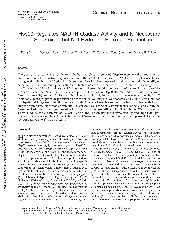摘要
The goal of this study was to identify whether heat-shock protein 90 (Hsp90) regulates the production of superoxide and other reactive oxygen species from the NADPH oxidases (Nox). We found that pharmacological and genetic inhibition of Hsp90 directly reduced Nox5-derived superoxide without secondarily modifying signaling events. Coimmunoprecipitation and bioluminescence resonance energy transfer studies suggest that the C-terminus of Nox5 binds to Hsp90. Long-term Hsp90 inhibition reduced Nox5 expression and provides further evidence that Nox5 is an Hsp90 client protein. Inhibitors of Hsp90 also reduced superoxide from Nox1, Nox2 (neutrophils), and Nox3. However, Nox4, which emits only hydrogen peroxide, was unaffected by Hsp90 inhibitors. Hydrogen peroxide production from the other Nox enzymes was not affected by short-term inhibition of Hsp90, but long-term inhibition reduced production of all reactive oxygen species coincident with loss of enzyme expression. Expression of chimeric Nox enzymes consisting of N-terminal Nox1 or Nox3 and C-terminal Nox4 resulted in only hydrogen peroxide formation that was insensitive to Hsp90 inhibitors. We conclude that Hsp90 binds to the C-terminus of Noxes1-3 and 5 and is necessary for enzyme stability and superoxide production. Hsp90 does not bind to the C-terminus of Nox4 and is not required for hydrogen peroxide formation. Antioxid. Redox Signal. 14, 2107-2119.
- 出版日期2011-6
- 单位西安交通大学
